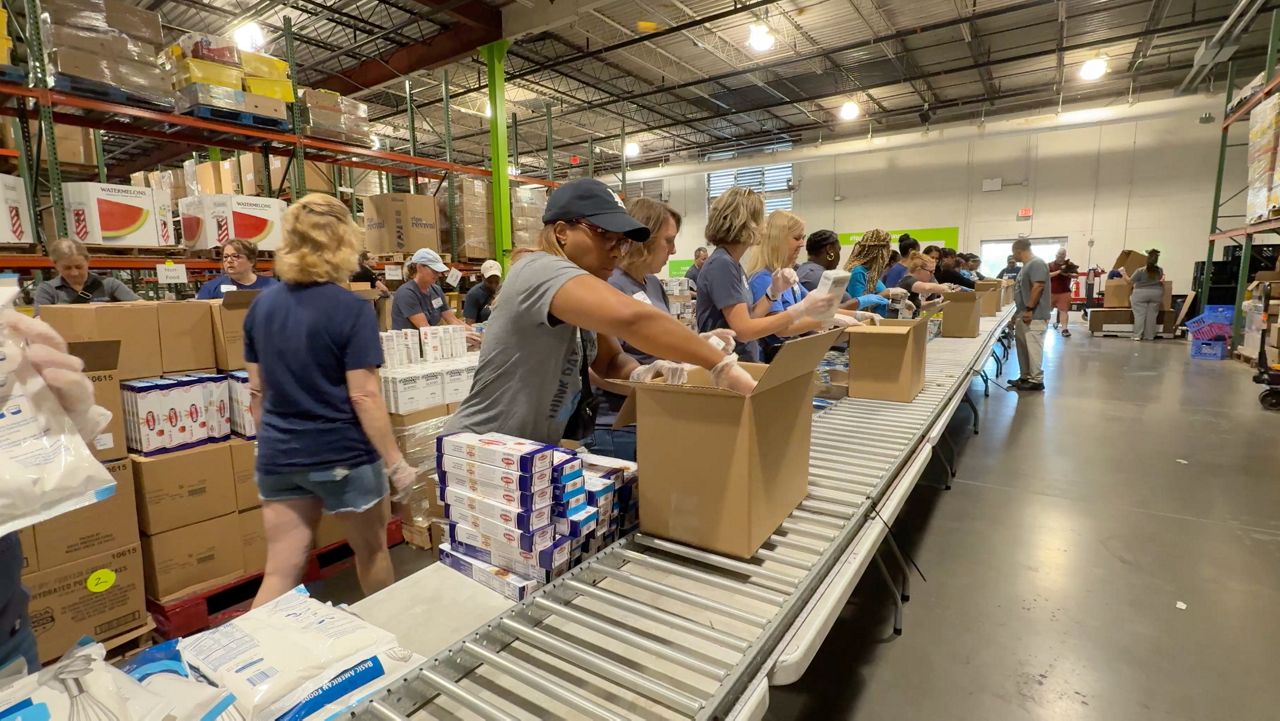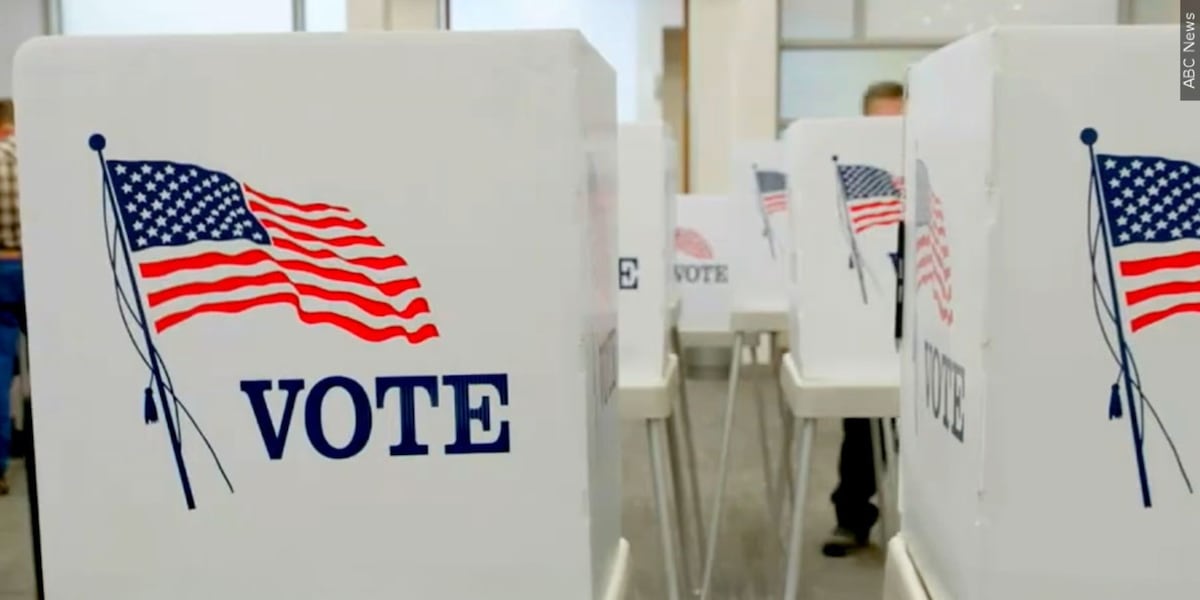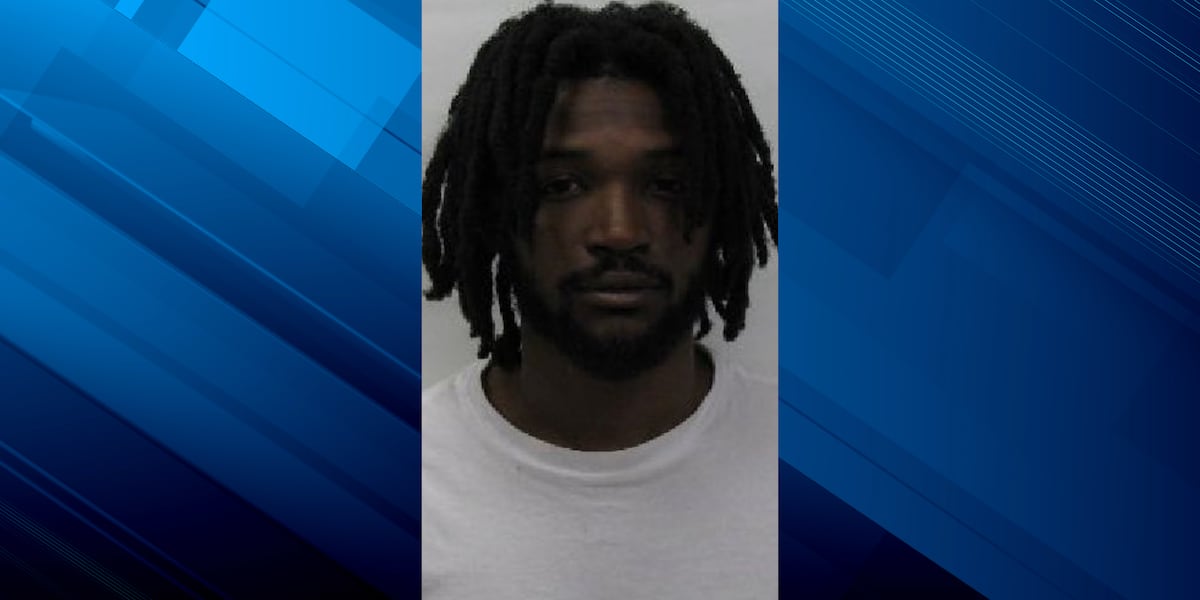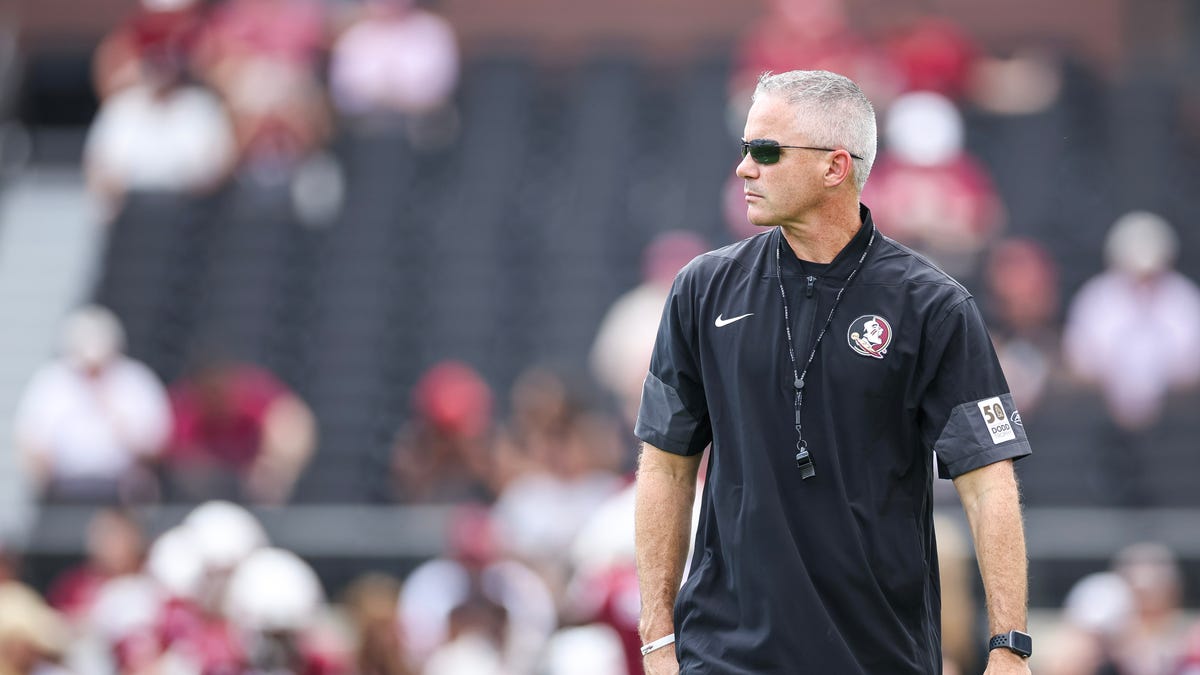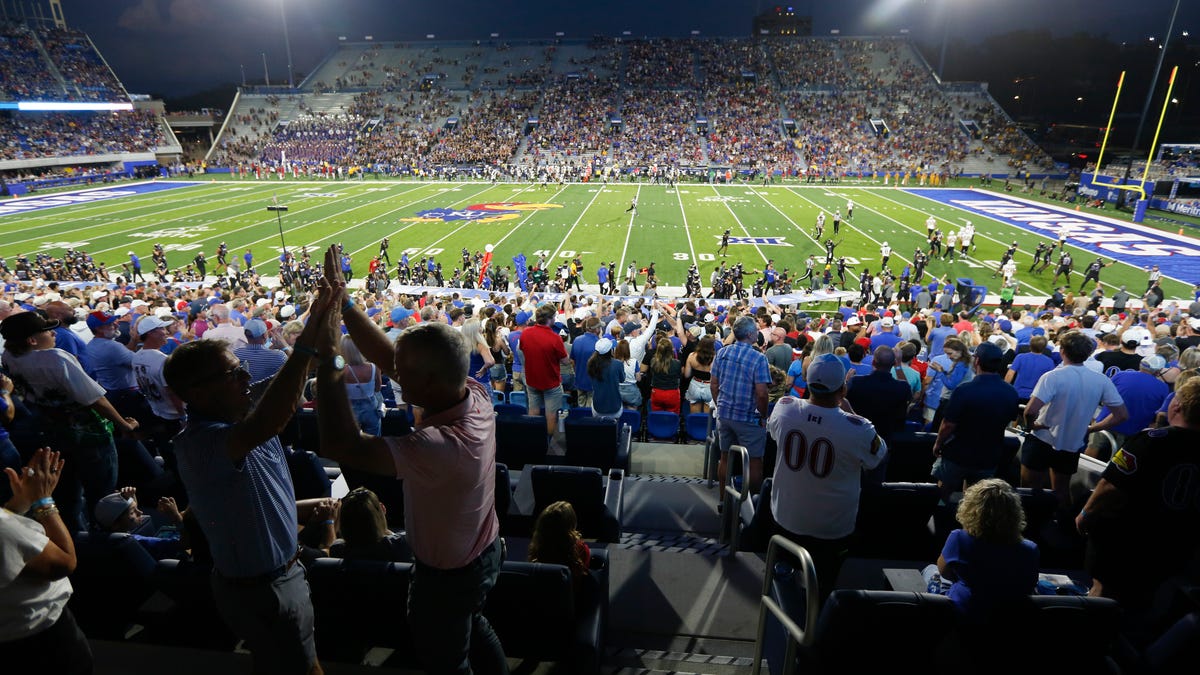Perhaps Josh said it best in his 5 takeaways, the Missouri Tigers 52-10 win over Louisiana was an exercise in ‘taking care of business’.
Missouri
More than 400k Missouri kids could be fed next summer if state opts in by Jan.1 deadline
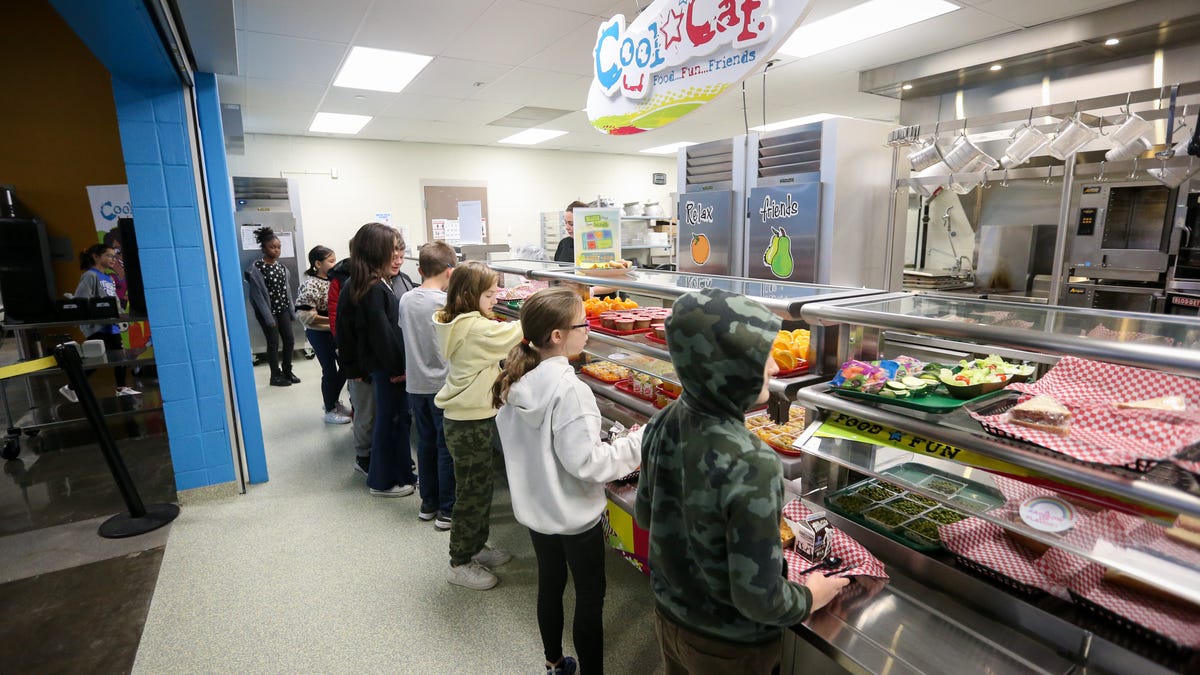
Missouri education and social services officials have not yet made a decision on whether to participate in a federal food assistance program next summer, weighing their ability to execute it after years of administrative challenges and delays.
Participating in the program, called Summer EBT, would provide approximately $51.5 million in food benefits to 429,000 Missouri children next summer. States have until Jan. 1 to notify the federal government of their intent to participate, and must submit a plan by Feb. 15.
The state is evaluating federal guidelines and “assessing Missouri’s ability to implement the [Summer EBT] program in 2024,” said Mallory McGowin, spokesperson for the Missouri Department of Elementary and Secondary Education, the agency that administers the benefits.
At least 20 other states have already notified the government of their intent to opt in to Summer EBT.
The program provides $40 in food benefits for each month the child is on summer break, loaded onto a card that can be used like a debit card to purchase groceries. Students who are eligible for free or reduced lunch during the school year are eligible for Summer EBT.
“We know how important this program is for kids and families,” said Crystal FitzSimons, director of School and Out-of-School Time Programs at the D.C.-based Food Research & Action Center.
“And we know what a huge impact it would make on reducing summer hunger, and easing the pressure on families’ household food budget. So we are really hopeful that Missouri and other states come onto the program.”
In a letter to Gov. Mike Parson sent Wednesday afternoon, a coalition of Missouri advocacy groups including Empower Missouri urged the governor to direct the education and social services agencies to operate the program.
“Missouri’s Department of Social Services or Department of Elementary and Secondary Education must act soon to meet this deadline,” the letter said. “… It is vital that Missouri leverage this opportunity to keep summer hunger at bay in 2024 and beyond.”
Missouri officials are weighing considerations including: “technology solutions and the timeline in which a system would be in production and complete,” along with the level of staffing assigned to EBT implementation and administrative funding, McGowin said.
The Summer EBT program was approved and made permanent by Congress last year. A similar, temporary program called Pandemic EBT provided various benefits during the pandemic, including over the summers.
The temporary pandemic-era food programs were beset with administrative issues in Missouri that made dispersing benefits difficult — particularly because it required a new data collection portal to collect and share eligible students’ information with two agencies in the state.
The benefits designed to cover food costs during the summer of 2022 did not start going out until June 2023, and Missouri declined to participate in the summer 2023 program because of those issues — foregoing at least $40 million in aid.
The state is still troubleshooting benefits from summer 2022, McGowin said — primarily cases in which the department did not have the students’ correct address. Around 348,000 school children received the summer 2022 benefits, which is more than 100,000 short of the number predicted to have been eligible — a discrepancy McGowin has previously attributed to instances such as students graduating or moving and no longer qualifying.
More: With zero fanfare, anonymous donor wipes out $119K in SPS student lunch debt
Summer 2022 Pandemic EBT also included children under age six, which the permanent program will not. Those benefits were dispersed in September 2023, McGowin said.
In July, McGowin pledged that going forward the state would “focus on implementing the system changes necessary to facilitate participation in Summer EBT programs in future years,” but said to participate, the state’s “data collection systems need to be addressed well in advance.”
FitzSimons said some states are “in a better place coming out of pandemic EBT.”
“Others I think didn’t really set up the long-term systems to build off of,” she said.“And Missouri did not participate in 2023. So I think they do need to do some work, probably, in setting up more permanent systems.”
She added that putting in the effort now to create the system for this summer would ensure there is “less food insecurity over the summer in Missouri, that kids are able to return to school in the fall well nourished and ready to learn,” she said — and create a framework for years to come.
States are also facing the broader challenges of implementing a program with new guidance from the federal government and securing the funding to do so.
The federal government will pay for the benefits but split the administrative cost 50/50 with the state. There is no budget request in the education department’s current fiscal year 2025 budget request for Summer EBT.
McGowin said a request would be added during the legislative appropriations process if a decision to implement the program is made.
This story was first published at www.missouriindependent.com.

Missouri
Missouri woman sentenced to prison over scheme to sell Elvis Presley’s Graceland
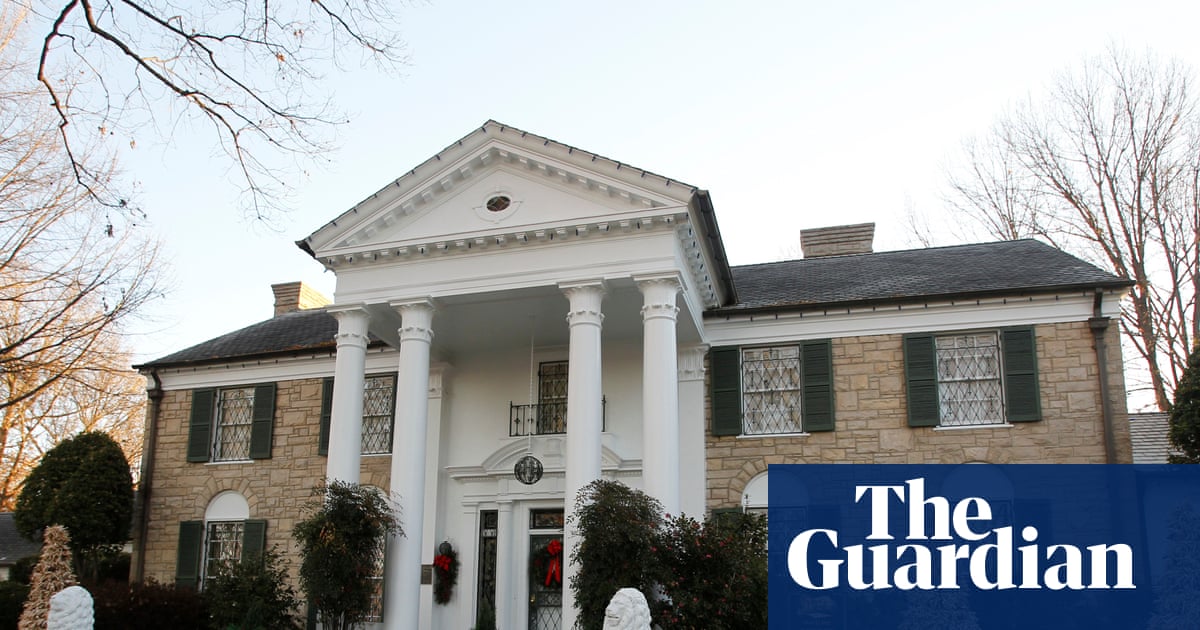
A Missouri woman was sentenced on Tuesday to more than four years in federal prison for scheming to defraud Elvis Presley’s family by trying to auction off his Graceland home and property before a judge halted the brazen foreclosure sale.
US district judge John T Fowlkes Jr sentenced Lisa Jeanine Findley in federal court in Memphis to four years and nine months behind bars, plus an additional three years of probation. Findley, 54, declined to speak on her own behalf during the hearing.
Findley pleaded guilty in February to a charge of mail fraud related to the scheme. She also had been indicted on a charge of aggravated identity theft, but that charge was dropped as part of a plea agreement.
Findley, of Kimberling City, falsely claimed Presley’s daughter borrowed $3.8m from a bogus private lender and had pledged Graceland as collateral for the loan before her death in January 2023, prosecutors said when Findley was charged in August 2024. She then threatened to sell Graceland to the highest bidder if Presley’s family didn’t pay a $2.85m settlement, according to authorities.
Findley posed as three different people allegedly involved with the fake lender, fabricated loan documents and published a fraudulent foreclosure notice in a Memphis newspaper announcing the auction of Graceland in May 2024, prosecutors said. A judge stopped the sale after Presley’s granddaughter sued.
Experts were baffled by the attempt to sell off one of the most storied pieces of real estate in the country using names, emails and documents that were quickly suspected to be phony.
Graceland opened as a museum and tourist attraction in 1982 and draws hundreds of thousands of visitors each year. A large Presley-themed entertainment complex across the street from the museum is owned by Elvis Presley Enterprises. Presley died in August 1977 at the age of 42.
The public notice for the foreclosure sale of the 13-acre (5-hectare) estate said Promenade Trust, which controls the Graceland museum, owed $3.8m after failing to repay a 2018 loan. Actor Riley Keough, Presley’s granddaughter, inherited the trust and ownership of the home after the death of her mother, Lisa Marie Presley.
Keough filed a lawsuit claiming fraud, and a judge halted the proposed auction with an injunction. Naussany Investments and Private Lending – the bogus lender authorities say Findley created – said Lisa Marie Presley had used Graceland as collateral for the loan, according to the foreclosure sale notice. Keough’s lawsuit alleged that Naussany presented fraudulent documents regarding the loan in September 2023 and that Lisa Marie Presley never borrowed money from Naussany.
Kimberly Philbrick, the notary whose name is listed on Naussany’s documents, indicated she never met Lisa Marie Presley nor notarized any documents for her, according to the estate’s lawsuit. The judge said the notary’s affidavit brought into question the authenticity of the signature.
In halting the foreclosure sale, the judge said Elvis Presley’s estate could be successful in arguing that a company’s attempt to auction Graceland was fraudulent.
A statement emailed to the Associated Press after the judge stopped the sale said Naussany would not proceed with the sale because a key document in the case and the loan were recorded and obtained in a different state, meaning “legal action would have to be filed in multiple states”. The statement, sent from an email address for Naussany listed in court documents, did not specify the other state.
After the scheme fell apart, Findley, who has a criminal history that includes attempts at passing bad checks, tried to make it look like the person responsible was a Nigerian identity thief, prosecutors said. An email sent on 25 May 2024, to the AP from the same email as the earlier statement said in Spanish that the foreclosure sale attempt was made by a Nigerian fraud ring that targets old and dead people in the US and uses the internet to steal money.
In arguing for a three-year sentence, defense attorney Tyrone Paylor noted that Presley’s estate did not suffer any loss of money and countered the prosecution’s stance that the scheme was executed in a sophisticated manner.
Fowlkes, the judge, said it would have been a “travesty of justice” if the sale had been completed.
“This was a highly sophisticated scheme to defraud,” he said.
Missouri
Pourover: Missouri keeps the focus on themselves

Each season has to play out fully before we gain an understanding of the significance of any single win. Mizzou looked shaky at times in their week one win over Central Arkansas, they had a very forgettable 1st quarter against Kansas, but the win over Louisiana was sheer dominance. We don’t know what the Cajuns will look like the rest of their season, they are starting a freshman quarterback after their presumed starter, Ole Miss transfer Walker Howard, went down with an injury early this season. But the program is still a proud one with four double digit win seasons in their last 6, including 10 wins just last year.
The Louisiana offense gained just 121 yards of offense on 36 plays, with Zylan Perry’s 84 yard scamper being included in that tally. Take away Perry’s touchdown run and there were 35 offensive plays and 37 yards of offense. In the third quarter alone Louisiana ran just 6 plays for -2 yards.
That’s defensive dominance.
On offense, Missouri was efficient. 86 plays, 42 minutes of possession, 606 yards gained, including 427 yards on the ground. 10.5 yards per completion, of which there were 17. 6.9 yards per rush, on 62 attempts. It took 27 plays before Missouri failed to gain yardage on an offensive play from scrimmage. By that point it was 28-0 and the message was sent. Sure there was an interception which set up a Field Goal, and shortly there after was Perry’s touchdown run.
Missouri wasn’t perfect, but they were dominant.
We’ve now watched three games where Missouri has been the much better team for the bulk of the game. I’ll give KU the 1st quarter — even if I think that was more the result of the random nature of the game — but the last three quarters were about the Tigers. We’ll learn more about how quality these wins have been as the season wears on. The players don’t get to pick the opponents, they show up and play. And they’ve done all you can ask of them so far.
You get to this place by not worrying about who you’re playing on the field, but focusing on you. It doesn’t matter if the player in front of you is a potential 1st round draft pick or a guy hanging on the back end of an FCS roster, do your job and win the battle. If each player approaches it that way, you end up with games like this one. And much of the past three. Focus on yourself, be the best you can be, let the rest work itself out.
It’s important to keep this mindset each and every week. Because in watching the results around the rest of college football play out, we’re seeing a real opportunity for Missouri.
South Carolina comes into Columbia next week with a whole lot of question marks. Their inflated ranking has been based largely on the Heisman quality quarterback LaNorris Sellers, who may not even be available after getting a possible concussion against Vanderbilt. Sellers left that game, didn’t return, and Vandy tightened the screws on the Gamecocks in Columbia, winning 31-7.
South Carolina struggled against Virginia Tech, didn’t exactly put South Carolina State away, and got crushed by Vanderbilt. On top of potentially missing Sellers, star Defensive Lineman Dylan Stewart might also miss the first half after getting ejected late in the second half.
Missouri should be the favorite regardless if Sellers plays or not. But being the favorite doesn’t matter if you don’t do what’s required, focus on yourself and controlling what you can, and getting a win to start 4-0.
- 3. LSU 20, Florida 10
- 6. Georgia 44, 15. Tennessee 41
- 7. Texas 27, UTEP 10
- 16. Texas A&M 41, 8. Notre Dame 40
- Vanderbilt 31, 11. South Carolina 7
- 13. Oklahoma 42, Temple 3
- 17. Ole Miss 41, Arkansas 35
- 19. Alabama 38, Wisconsin 14
- 24. Auburn 31, South Alabama 15
- Mississippi State 63, Alcorn State 0
- Kentucky 48, Eastern Michigan 23



0 Comments
Missouri
Missouri Starters Coalition debuts effort to boost homegrown jobs, future founders
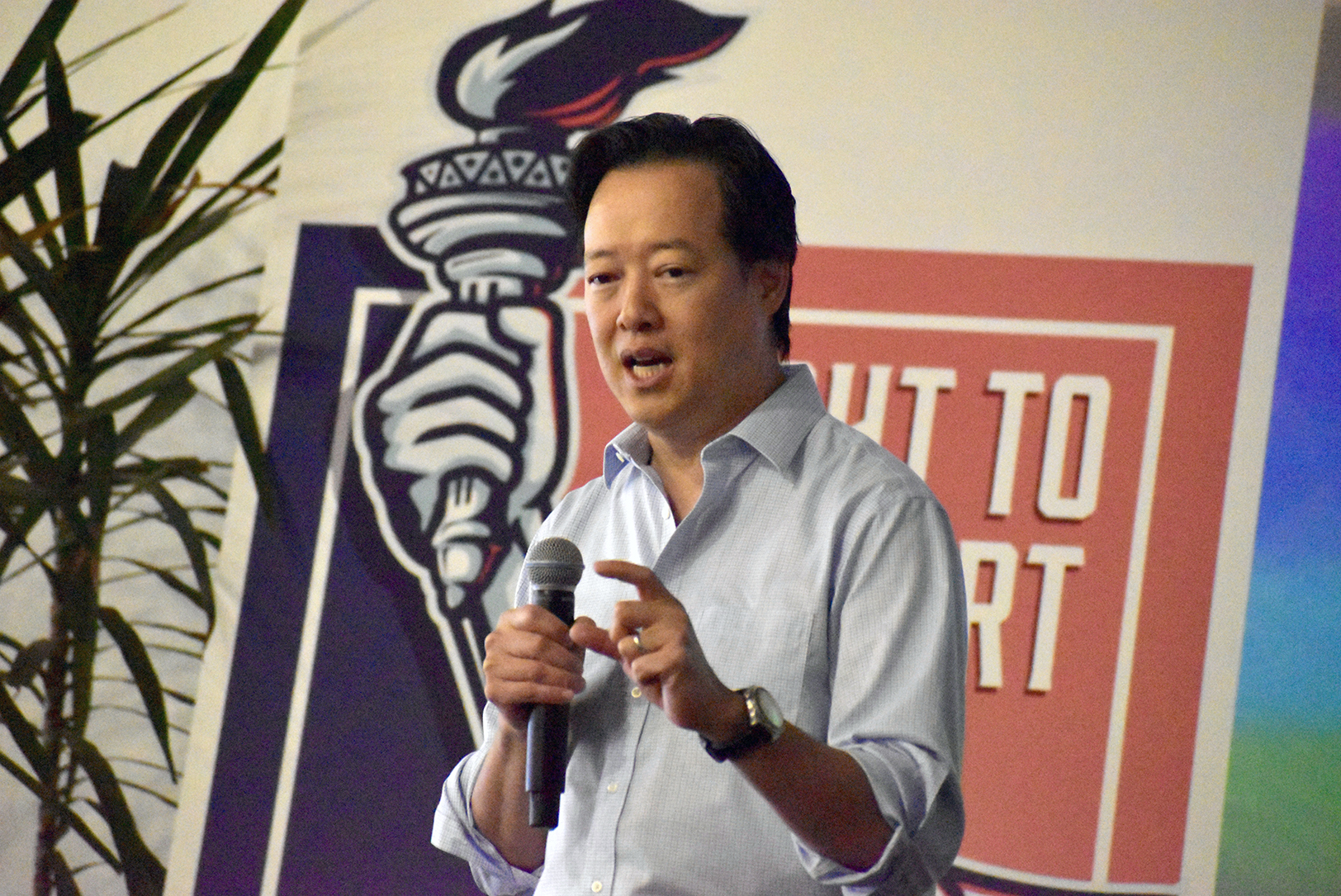
Entrepreneurs across Missouri gained a new champion this week as regional and national advocates launched a new coalition to support builders in the face of systemic, confidence-shaking roadblocks as they seek to drive job creation and higher lifetime incomes.
Jim Malle, Missouri Coalition manager for Right to Start, speaks to coalition stakeholders during a launch event in Kansas City; photo by Nikki Overfelt Chifalu, Startland News
The Missouri Starters Coalition on Thursday unveiled its founding members — Back2KC, Cortex, E-Factory, Keystone Innovation District, LaunchKC, NextMO, and lead organizer Right to Start — which together plan to make entrepreneurship a greater civic priority through convening, addressing barriers to starting businesses, and making sure all communities are included.
“We are beginning the journey today of launching a coalition of entrepreneurs, policy makers, civic organizations, to really come together to continue to boost entrepreneurship in the state of Missouri,” said Jim Malle, Missouri Coalition manager for Right to Start.
“Kansas City has had a lot of great momentum over the last 5 to 10 years in this space, and Right to Start is going to be here to continue to move that along in a great direction,” he added.
The launch event also included a panel on how small businesses can prepare for and benefit from the 2026 FIFA World Cup. An estimated 650,000 World Cup visitors are expected across June and July 2026 as Kansas City hosts both group stage and quarterfinal matches.
World Cup will produce KC small biz millionaires in just weeks, leaders say, but it’s only the start
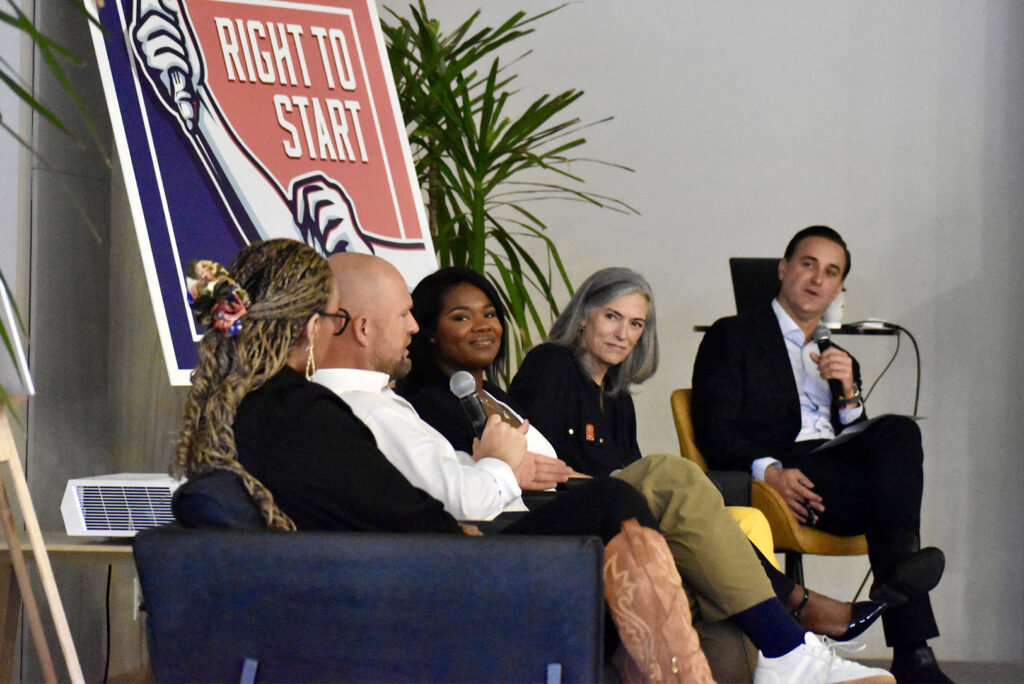
Wes Rogers, 2nd District Councilman for KCMO and chair of the city’s Small Business Taskforce, center, speaks on panel moderated by Right to Start’s Jason Grill, right; photo by Nikki Overfelt Chifalu, Startland News
Entrepreneurship drives America
Victor Hwang, founder and CEO of Right to Start, returned to Kansas City for Thursday’s event and praised the city’s growth as a startup hub.
“This is one of the most dynamic entrepreneurial ecosystems that I’ve seen, and it’s just a really exciting time,” Hwang said.
He pointed to research showing that 65 percent of Americans believe it is harder to start a business today than it was a generation ago. Yet, he noted, nearly everyone agrees that entrepreneurship is critical to the future of the country.
“New and young businesses account for almost all net job growth in the economy,” Hwang said, citing that a 1 percent rise in local entrepreneurship raises household incomes by about $500, and at the state level, a 1 percent increase lowers poverty rates by 2 percent.
“Entrepreneurship-led economic development leads to higher lifetime incomes, more homegrown jobs, and more opportunity for all,” added Jason Grill, chief government affairs officer of Right to Start.
In light of America’s 250th anniversary in 2026, Hwang said, the country’s founding story is tied to today’s entrepreneurs.
“America was one of the great startup ideas,” he said. “Founders of today, the people that are doing stuff now, are part of that same story. We want everyone to feel like they can be a founder of the future of this country.”
‘America the Entrepreneurial’: Can builders restore the promise of ‘the most courageous startup the world has ever seen?’
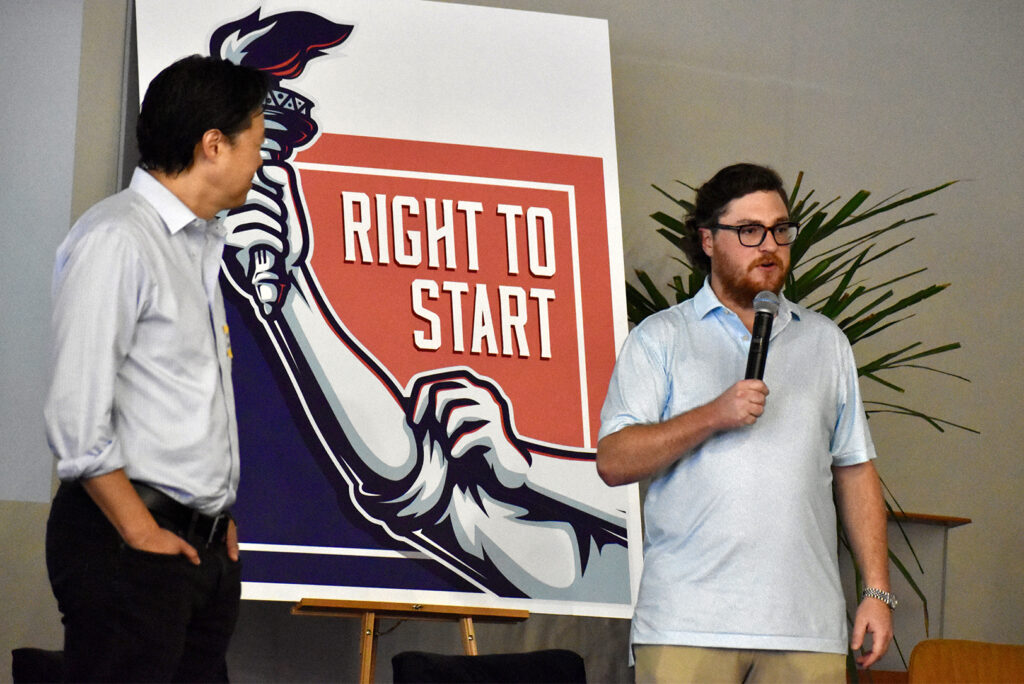
Jim Malle, Missouri Coalition manager for Right to Start, right, speaks alongside Victor Hwang, founder of Right to Start, at Keystone CoLAB in Kansas City; photo by Nikki Overfelt Chifalu, Startland News
Statewide push follows legislation
The Missouri Starters Coalition builds on policy momentum already in motion. In 2024, Show Me State lawmakers passed the Right to Start Act, which created Missouri’s first office of entrepreneurship and set up new tracking for government contracts awarded to businesses less than three years old.

Jessica Powell, Right to Start; photo by Austin Barnes, Startland News
“As a lifelong Kansas Citian, entrepreneur, and former member of the Missouri House of Representatives, it gives me great joy to see Missouri embracing the importance of new, young businesses to the economy and well-being of the state,” said Grill.
Malle, based in St. Louis, will oversee the coalition’s growth with the help of Jessica Powell, who is based in Kansas City and a Right to Start advocate for Missouri.
“Having spent much of my career advancing entrepreneurship in both Kansas City and St. Louis, I’m excited to see this coalition emerging to promote entrepreneurship as a civic priority statewide,” Malle said. “It’s especially important, as entrepreneurship benefits literally everyone in Missouri.”
-

 Finance7 days ago
Finance7 days agoReimagining Finance: Derek Kudsee on Coda’s AI-Powered Future
-

 World6 days ago
World6 days agoSyria’s new president takes center stage at UNGA as concerns linger over terrorist past
-
North Dakota7 days ago
Board approves Brent Sanford as new ‘commissioner’ of North Dakota University System
-

 Technology6 days ago
Technology6 days agoThese earbuds include a tiny wired microphone you can hold
-

 Culture6 days ago
Culture6 days agoTest Your Memory of These Classic Books for Young Readers
-

 Crypto5 days ago
Crypto5 days agoTexas brothers charged in cryptocurrency kidnapping, robbery in MN
-

 Crypto7 days ago
Crypto7 days agoEU Enforcers Arrest 5 Over €100M Cryptocurrency Scam – Law360
-

 Rhode Island7 days ago
Rhode Island7 days agoThe Ocean State’s Bond With Robert Redford

